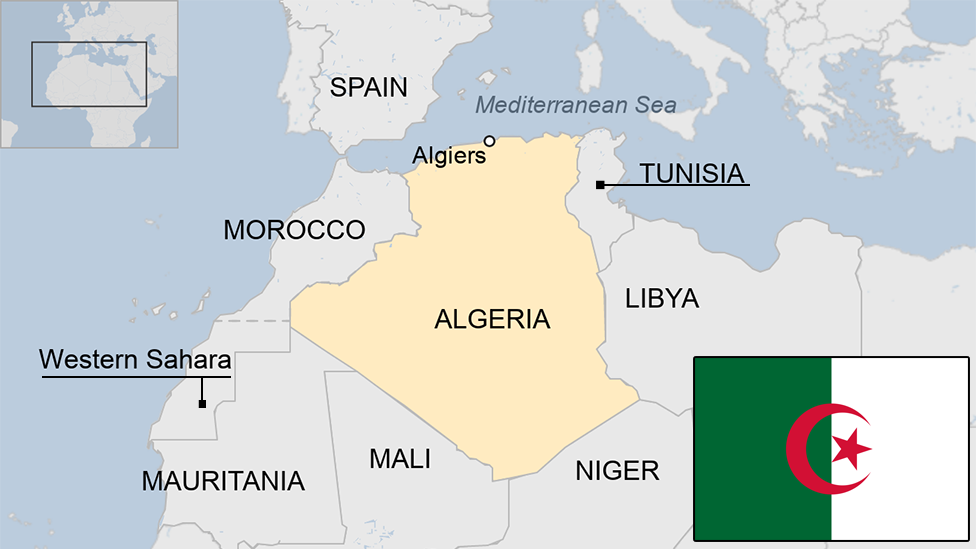Bouteflika's absence leaves Algeria pondering future
- Published
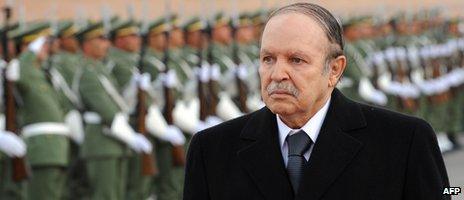
Abdelaziz Bouteflika consolidated his own position as president, but power is spread between factions within the ruling elite
It is not unusual for Algerian President Abdelaziz Bouteflika to disappear from view.
The 76-year-old's health has been a source of rumour for years, and he has often gone weeks or months without making a public appearance.
But his prolonged absence after being treated at a military hospital in Paris in late April for a "mini-stroke" has focused attention on whether Algeria might finally be exposed to profound change as power passes to a new generation.
It also appears to have quashed recent speculation that Mr Bouteflika could stand for a fourth term next year, and triggered intense manoeuvrings over the expected succession.
At the same time, however, the state has continued to operate, and observers say real political change, if it comes at all, may come slowly.
"We're not in an autocratic system but an authoritarian one, in which the president is just one element, and is far from having all powers concentrated in his hands," says Mohammed Hachemaoui, an Algerian political scientist currently at the German Institute for International and Security Affairs.
"So his absence doesn't put the functioning of this regime at risk."
Elder statesman
Algeria is a key regional power - a youthful nation of 36 million that is a major exporter of oil and gas and has become an important ally of the West in the campaign to counter Islamist militancy.
It has also remained relatively stable as leaders in its neighbours to the east - Tunisia, Libya and Egypt - were toppled in popular uprisings in 2011.
Indeed, Algeria's ruling elite has proved strikingly resilient.
The country is led by a man who fought in the war of independence against France and first became a minister in the year that war was won, 1962.
The core of the elite has remained essentially intact ever since, through economic and political upheaval in the 1980s, a coup in 1992, and the subsequent conflict in which some 150,000 are believed to have died.
Mr Bouteflika made himself into a symbol of Algeria's ability to overcome, or at least bury the memory of, the worst of that violence.
The youthful foreign minister of a hopeful country in the 1960s and 70s, he returned as an elder statesman in 1999, granting amnesty to many of the Islamist insurgents still fighting the state.
The latter part of his presidency has coincided with a dramatic rise in the price of oil, which allowed for generous public spending programmes and subsidies.
Mr Bouteflika consolidated his position in relation to the military. But authority remained diffused within an opaque and factional elite, often referred to in French as "Le Pouvoir", in which unelected officials connected to the military and the intelligence services are the ultimate arbiters of power.
'Illusion of change'
In this system, as a 2009 despatch from the US embassy published by Wikileaks, external observed, officials from presidents to customs officers are "designated", rather than being selected transparently.
That looks set to continue with Mr Bouteflika's eventual replacement. While the likely contenders are slightly younger, they are "pure products of the system", says Mr Hachemaoui.
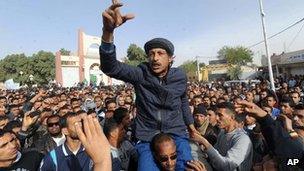
There has been a recent wave of protests against unemployment and corruption
"There will be a generational change, but it won't be a generational change that causes a change of regime. It's an illusion of change."
He adds that systemic corruption has made reform harder, and that the government bought itself a temporary reprieve by boosting handouts two years ago.
Big challenges remain, especially if the price or quantity of the oil and gas that Algeria exports drops significantly. There are frequent demonstrations over failings in public services, and central and southern towns saw a series of protests over unemployment and corruption in earlier this year.
But there appears to be little appetite "for any kind of showdown", says James McDougall, a modern history tutor and Algeria specialist at the UK's Oxford University.
"I think there's a general dissatisfaction, disenchantment, disengagement from politics.
"There isn't this massive pent-up oppositional energy that there was in Tunisia or Egypt. That has lots and lots of places to express itself in Algeria - in the press, the parties, and in local politicking."
Change in Algeria may be more subtle, he adds, as the men who monopolised power in the 1990s are replaced by leaders "thinking about where to go, rather than about just holding on to things".
In the longer term, that could herald the possibility of real reform.
"We may be coming to the end of a slightly cynical formula the regime has used since the mid-90s - the formula of pre-selecting the winner informally behind the scenes, but then allowing the election to be formally contested by also-rans or by other candidates," says Hugh Roberts, professor of North African and Middle Eastern history at Tufts University in the US.
"In which case the question of whether or not Algeria should finally move to genuinely free elections does begin to come onto the agenda. But I don't see it as sufficiently on the agenda at this point to enter into how Bouteflika's successor is chosen."
- Published18 January 2013
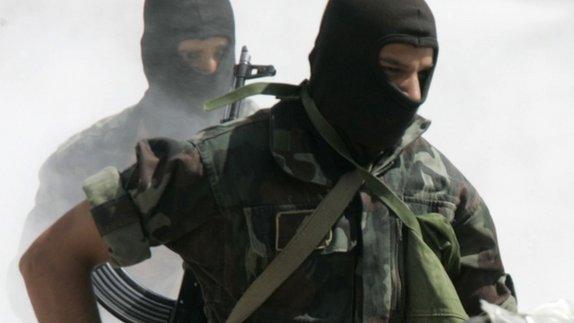
- Published2 June 2011
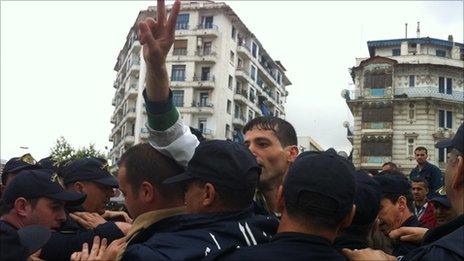
- Published9 September 2024
